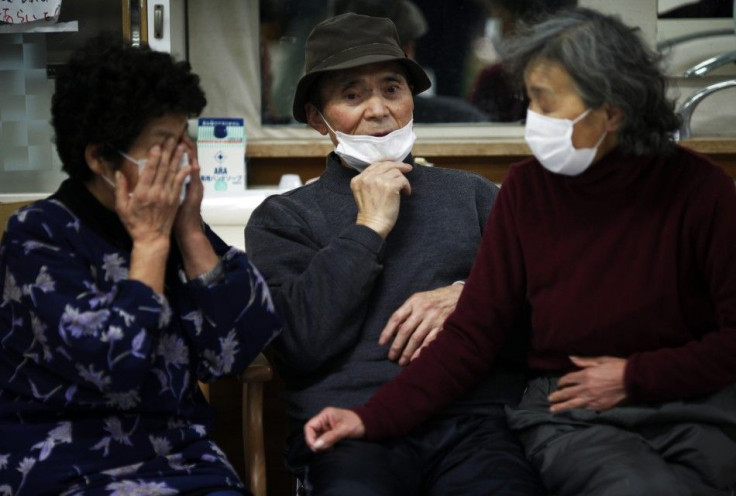In rapidly aging Japan, the elderly suffer the most in incomprehensible tragedy

In a nation that is rapidly aging, the elderly have suffered disproportionately in the unprecedented disaster that has befallen Japan.
Almost one-quarter of Japan’s population is above the age of 65.
Young people have been fleeing the rural areas (including the northeast, the epicenter of the disaster), leaving behind old people.
During the initial shock of the earthquake, then the tidalwaves of the tsunami, many elderly Japanese likely died, unable to run away or too weak to move. The trauma of the tragedies and the discomfort of moving to evacuation shelters probably killed many more old people, while hundreds, perhaps, thousands remain missing.
Indeed, fourteen elderly hospital patients perished as they were evacuated to an area outside the stricken Fukushima nuclear power plant to a gymnasium that lacked proper facilities to care for them.
We feel very helpless and very sorry for them, said Chuei Inamura, a Fukushima municipal official, according to Associated Press.
The condition at the gymnasium was horrible. No running water, no medicine and very, very little food. We simply did not have the means to provide good care.
Taking into account the worsening weather and the destruction of local hospitals and clinics, many more elderly Japanese face certain death.
Doctors Without Borders, the international medical assistance group, said it has seen cases of hypothermia, serious dehydration and respiratory diseases in some shelters where many old people are being housed.
A man whose elderly relatives are missing told the AP: I think there is no hope. I can't find them. The only thing I can do is wait until the military collects their bodies.
Some foreign rescue teams have given up looking for survivors, citing that it would be impossible for someone to still be living under tons of rubble after a whole week.
We have no more tasks, said Pete Stevenson, a firefighter from the UK who is in Japan. The Japanese government [has] told us they are now moving from search and rescue to the recovery phase.
Another British rescue team member, Heather Heath, lamented: There are probably dozens of bodies we just can't reach. The water can force people under floorboards and into gaps we can't search. It's such a powerful force.
© Copyright IBTimes 2024. All rights reserved.





















